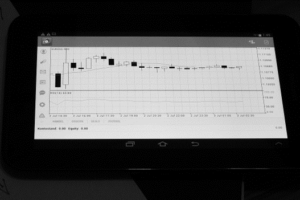 We now know that cardiovascular disease affects people of all ages and races, and, in fact, is the leading cause of death for both men and women. About 659,000 people die from heart disease in the United States each year — one in every four deaths, according to the Centers for Disease Control and Prevention (CDC).
We now know that cardiovascular disease affects people of all ages and races, and, in fact, is the leading cause of death for both men and women. About 659,000 people die from heart disease in the United States each year — one in every four deaths, according to the Centers for Disease Control and Prevention (CDC).
And not only that, the CDC also reports that 47% of all Americans have at least 1 of 3 key risk factors for heart disease: high blood pressure, high cholesterol and they smoke.
The good news? It’s easy to make a difference in your heart health, according to cardiologist Giora Weisz, M.D., medical director of the cardiac catheterization laboratory and interventional cardiology at NewYork-Presbyterian Hudson Valley Hospital. And maintaining a healthy heart doesn’t need to feel daunting.
Diet and physical activity are important parts of maintaining a healthy heart, but they are easier to master than most people think. Cardiology physicians share four things they wish people knew about their heart health — and the simple steps they can take to stay heart-healthy.
- Nutrition plays a critical role in your heart health: A tip for a healthy diet is to take a plate and divide it into three sections. In each section, make sure there is a different color but no white — white would be a potato, bread, rice, or pasta. Instead, replace white foods with colorful peppers, beets, green vegetables, salads, or a piece of chicken or fish. Even whole wheat carbs should be limited. Keep the focus on color.
- Exercising is important and easier than you think: Many people are aware that they need to be physically active but often overextend themselves at the gym, putting themselves at risk for injuries. All you really have to do is walk for about 30 minutes a day. The American Heart Association’s guideline is 150 minutes of moderate physical activity per week, spread throughout the week: That’s basically walking back and forth to the train station on your way to work rather than driving your car or getting a ride, or it could even be getting off a stop early.
- Don’t smoke: Smoking leads to disease and disability and harms nearly every organ of the body. Smoking is a major cause of cardiovascular disease (CVD) and causes one of every four deaths from CVD, according to the CDC. Quitting smoking is one of the most important actions people who smoke can take to reduce their risk for cardiovascular disease. It not only reduces the risk of disease and death from cardiovascular disease, it also reduces markers of inflammation and hypercoagulability.
- The importance of sleep: There is evidence that inadequate sleep — that is, not just too few hours of sleep, but also poor sleep — is associated with an increased risk of adverse cardiovascular risk factors such as obesity, high blood pressure, Type 2 diabetes and overall cardiovascular disease. These are the groups of patients who have a higher risk of suffering from heart problems.
In celebration of Heart Month this February, NewYork-Presbyterian Hudson Valley Hospital is offering many free virtual classes and events to promote heart health in the community. Join hospital leaders on February 25 as well, as they share more information about the upcoming cardiac catheterization lab opening this spring.
.







